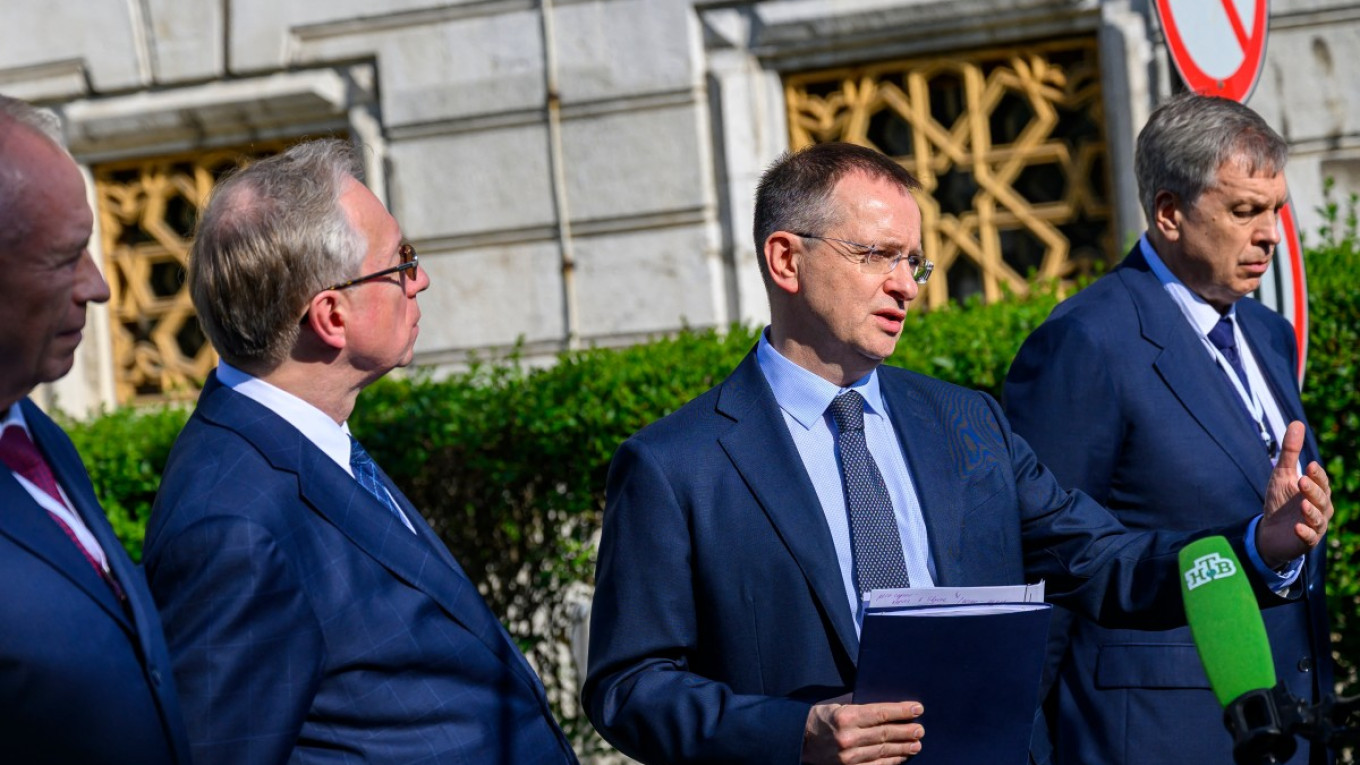Russian negotiators presented a memorandum to their Ukrainian counterparts during talks in Istanbul on Monday, proposing two possible frameworks for resolving Moscow’s ongoing full-scale invasion.
The proposals, released by state news agencies, reflect Moscow’s latest attempt to assert its maximalist conditions for concluding the conflict that has persisted for over three years.
The first framework demands that Kyiv fully withdraw from the Donetsk, Luhansk, Zaporizhzhia, and Kherson regions, territories that Russia partially occupies yet claims as its own. According to the memorandum, a ceasefire lasting 30 days would commence once the troop withdrawal begins. Additionally, Ukraine would be obligated to reposition its military a specified distance from the Russian border.
The second option, known as the “package proposal,” stops short of explicitly demanding the immediate surrender of the four partially occupied regions but presents an extensive list of conditions.
These conditions include an immediate halt to Ukrainian mobilization and the initiation of demobilization; cessation of all foreign military support, intelligence sharing, and satellite assistance to Kyiv; and assurance against any sabotage operations on Russian soil.
This second proposal also advocates for a bilateral amnesty to free detained civilians from both sides and requires Ukraine to conduct presidential and parliamentary elections within 100 days following the lifting of martial law.
Additionally, it specifies that foreign military personnel must exit Ukraine and restricts the movement of Ukrainian armed forces, barring their withdrawal from border regions.
According to a source from Interfax familiar with the negotiations, the two delegations met after a 2.5-hour face-to-face discussion between Ukrainian Defense Minister Rustem Umerov and Kremlin aide Vladimir Medinsky, which was described as a significant step in shaping the atmosphere for broader talks.
Moscow’s memorandum highlights a variety of long-standing demands from the Kremlin, many of which are likely to be unacceptable to Kyiv and its Western allies. These demands include:
– International recognition of Russian sovereignty over the occupied Ukrainian territories, including Crimea;
– A formal pledge from Ukraine to refrain from joining any military alliances or coalitions;
– Granting official status to the Russian language in Ukraine;
– Lifting of all existing sanctions between the two nations and a commitment not to impose new ones;
– Restoration of Russian natural gas transit via Ukraine and a resumption of comprehensive economic, diplomatic, and transportation relations;
– Mutual renouncement of claims for damages related to the war;
– Limitations on the size and structure of Ukraine’s military;
– Prohibition against the “glorification or promotion of Nazism and neo-Nazism” and the dissolution of nationalist parties;
– Confirmation of Ukraine’s non-nuclear status;
– Removal of legal constraints on the Ukrainian Orthodox Church affiliated with the Moscow Patriarchate.
Ukrainian officials have yet to publicly respond to the memorandum.

